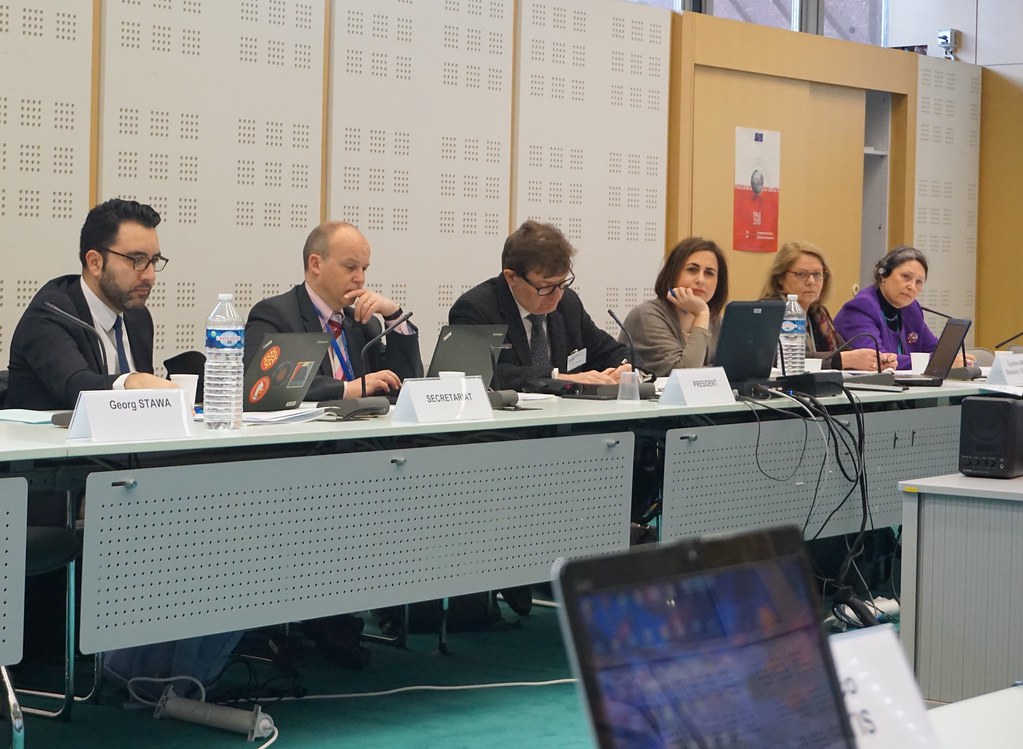A workshop on conducting court users’ satisfaction surveys was carried out by the European Commission for the Efficiency of Justice (CEPEJ) on 17-18 March 2016 in Strasbourg, France, as part of the PCF co-operation projects with the Republic of Azerbaijan and the Republic of Moldova.
The participants to the workshop, representing CEPEJ pilot courts and other justice stakeholders from Azerbaijan and Moldova, were introduced into the objectives and prerequisites of the dialogue with court users, primarily through conducting satisfaction surveys. CEPEJ pays particular attention to taking into account users’ expectations on the functioning of the courts and to conducting satisfaction surveys as a means to identify these expectations and to increase the quality of justice and courts. Judges and court managers should be aware and make use of this tool through cost-effective solutions for implementing surveys in regard to general court users (parties, victims etc.) and specific categories such as lawyers. In addition, an assessment of the pilot courts in Azerbaijan and Moldova carried out in the second half of 2015 revealed a certain instability of staff, which is an important factor for ensuring the quality of courts. Accordingly, conducting surveys and taking measures to improve the satisfaction of court staff was recommended as part of the CEPEJ court coaching programmes in both countries.
The workshop allowed an extended exchange on good practices and lessons learned from implementation of court users’ and staff satisfaction surveys in a number of countries represented by CEPEJ experts, such as Switzerland (esp. Republic and Canton of Geneva), France, Italy, Estonia and Slovenia. An important part of the agenda was dedicated to coaching on the organisation and conduct in the pilot courts of different types of satisfaction surveys, in terms of target groups and applicable methodologies. The recommendations conveyed to the participants focused on solutions applicable at the level of individual courts and involving actively the court staff (for a better sustainability of the respective initiatives, improving the organisational culture and the overall acceptance of a pro-active communication with court users).
For more photos of the workshop, click the photo below:

The Projects "Support to Increased Efficiency of Courts, Improved Training of Judges and Judicial Self-governance in Azerbaijan" and "Strengthening the efficiency of justice and support to lawyer’s profession in the Republic of Moldova" are part of the Joint CoE and EU Eastern Partnership Programmatic Cooperation Framework for 2015-2017, funded by the European Union and implemented by the Council of Europe.


